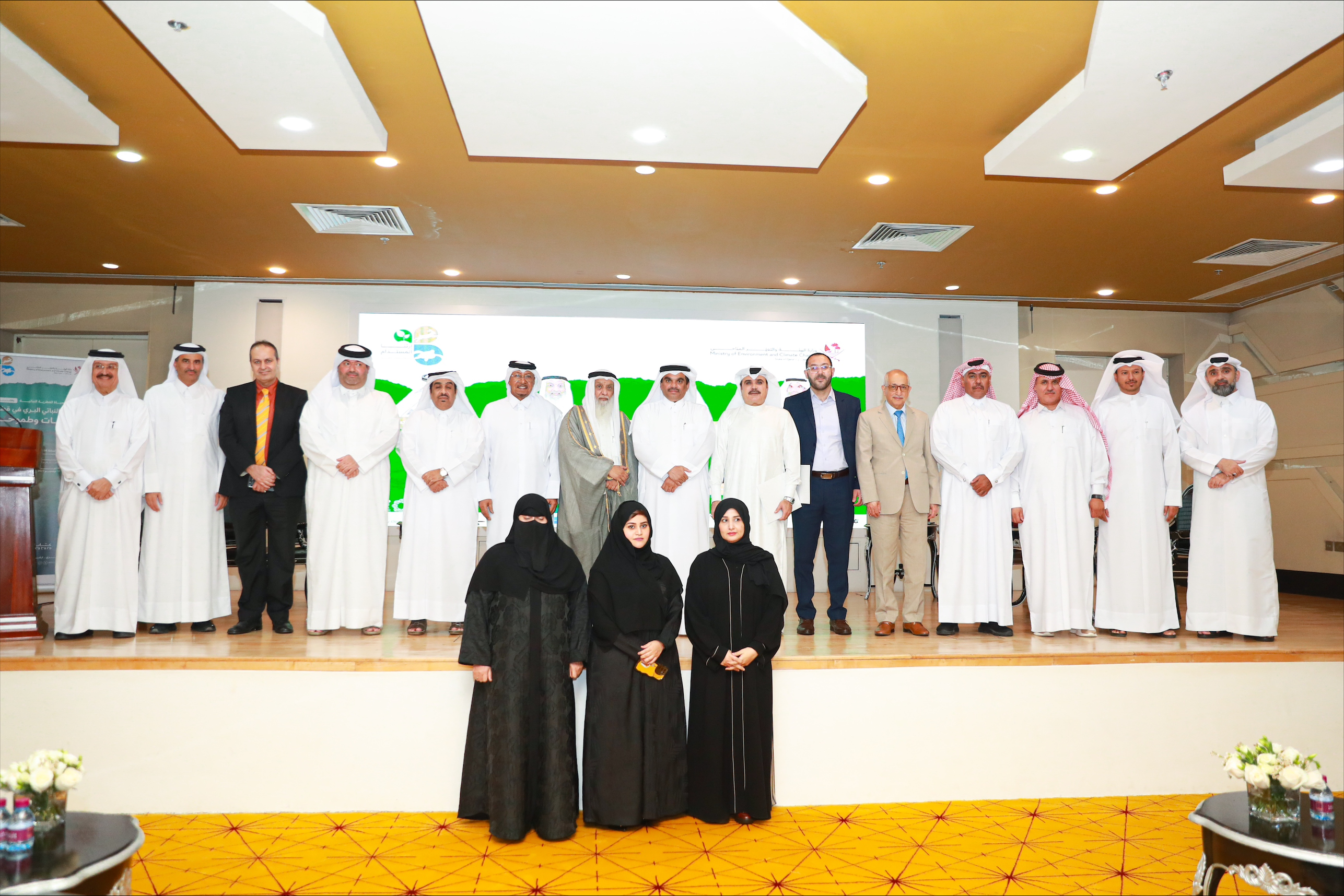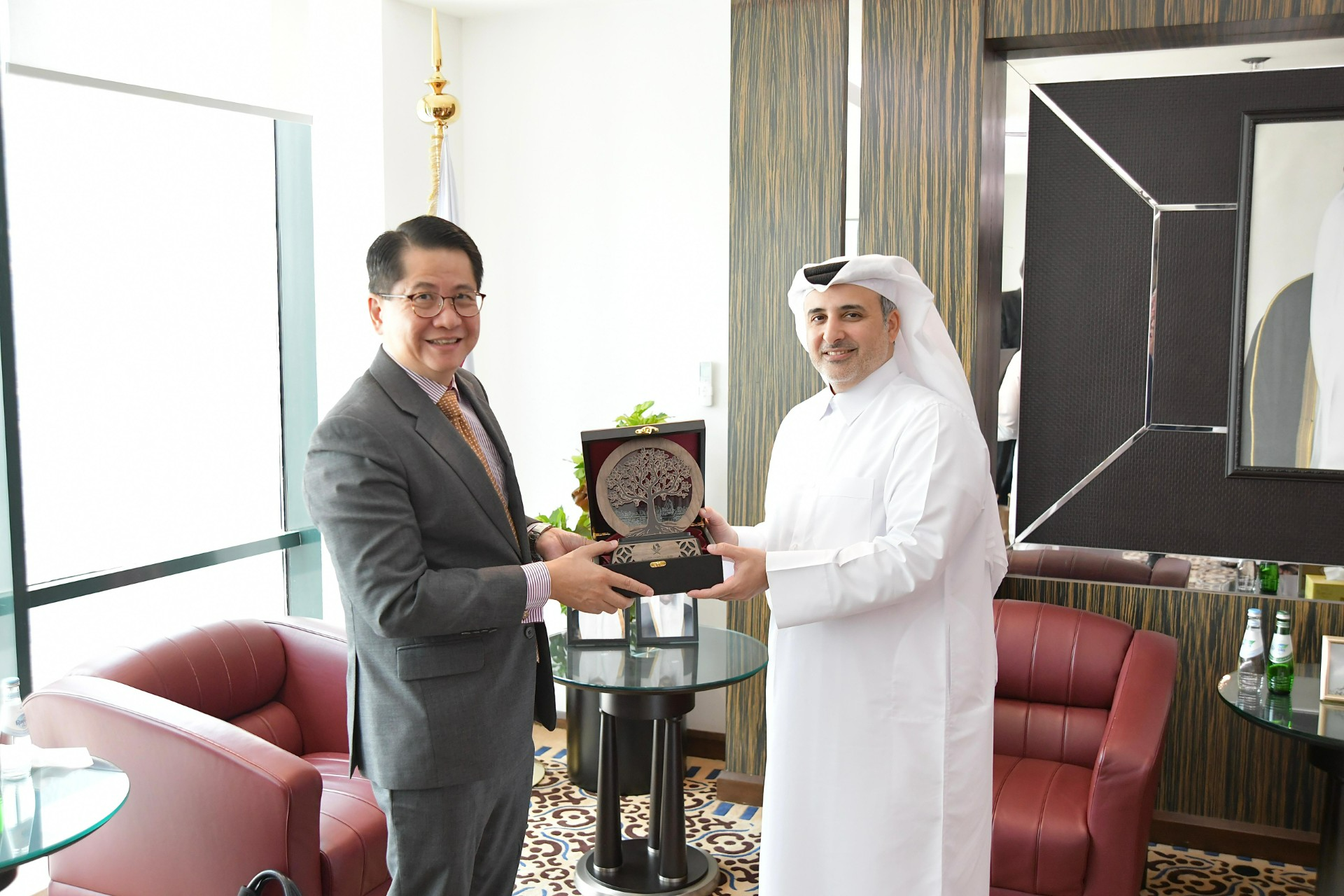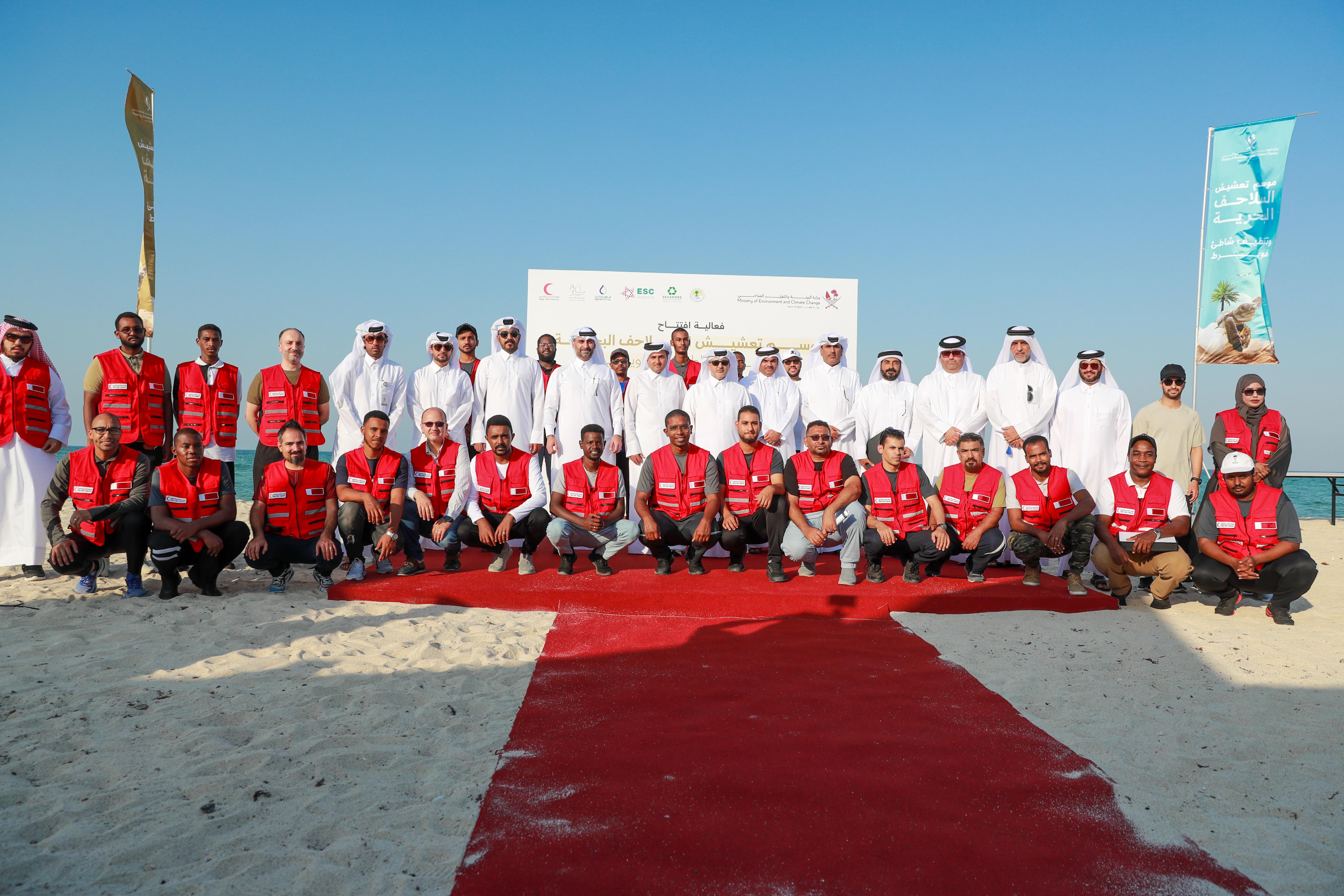
Symposium on Plant Biodiversity: Terrestrial Plant Cover in Qatar… Challenges and Ambitions
The Ministry of Environment and Climate Change organized a symposium on plant biodiversity under the slogan “Qatari Wilderness: Our Sustainable Heritage, Let’s Preserve It,” under the patronage of His Excellency Dr. Faleh bin Nasser bin Ahmed Al Thani, Minister of Environment and Climate Change. The event was attended by various officials, experts, academics, and enthusiasts interested in plant biodiversity, at the Cultural Village Foundation – Katara.
The symposium aims to promote environmental awareness among community members by facilitating the exchange of experiences, presenting experiments, ideas, and information, and developing effective, applicable shared perspectives to serve public goals. It also seeks to benefit from the experiences of pioneers, enthusiasts, and volunteers in environmental fields, fostering the exchange of scientific and practical insights and advice. It focuses on presenting and discussing certain matters and issues that serve environmental objectives while enhancing and preserving Qatar’s wilderness.
The symposium focused on several key themes, including the protection of plant biodiversity in Qatar and the preservation of plant cover. It addressed challenges such as habitat degradation, unsustainable harvesting, and overgrazing. Additionally, participants discussed the role of various media outlets in raising awareness and educating people about conserving Qatar’s wilderness, protecting wild plants and trees, particularly those at risk of extinction.
Dr. Ibrahim bin Abdul Latif Al-Musallam, Assistant Undersecretary for Protection and Wildlife Affairs at the Ministry of Environment and Climate Change, highlighted in his opening speech that this symposium is part of a series of forums organized by the ministry under the theme “Our Sustainable Heritage, Let’s Preserve It.” The goal is to shed light on the challenges and obstacles facing the development of wildlife in the country. He emphasized that among Qatar’s top priorities, represented by the Ministry of Environment and Climate Change, is the preservation of a clean and healthy environment for future generations. This involves protecting natural plants, developing their habitats, especially in the wilderness, and implementing a plan to rehabilitate numerous habitats based on scientific principles and specific criteria. The aim is to restore Qatar’s wilderness to its vitality and natural balance.
Dr. Mohammed Saif Al Kuwari, the president of the symposium, reiterated that Qatar’s terrestrial plant cover faces several challenges, including habitat degradation, unsustainable harvesting, and overgrazing. He emphasized that human practices such as soil excavation and disrupting the growth cycle of grasses and wild trees affect the natural beauty and contribute to the destruction of rare plants and trees, disregarding the risk of these trees becoming endangered or extinct.
He explained that overgrazing could lead to an environmental imbalance due to the loss of a crucial element responsible for renewing oxygen in the air. It might result in a decrease in the growth rate of plants and the inability to replace previously lost trees. Additionally, overgrazing poses a significant threat to wildlife, endangering animals and birds that migrate to areas with more favorable environmental conditions. Simultaneously, he pointed out that the danger of overgrazing lies in reducing the productivity of natural pastures, diminishing plant cover diversity, as well as soil erosion and the decline in seed stock within these areas.
Dr. Saif bin Ali Al-Hjri, the head of the “For Every Bloom a Flower” program, affirmed that the challenges facing the country in preserving its plant cover include limited land suitable for cultivation, scarce and erratic rainfall, rising temperatures, climate change, and urban expansion, particularly encroaching on areas suitable for cultivation. There’s also a lack of awareness regarding the appropriate locations and timing for harvesting, grazing, and the essential regulations for responsible camping.
Dr. Al-Hjri added that the country is making significant efforts to overcome these challenges through conducting surveys, scientific monitoring, and the establishment of a comprehensive, integrated database available to researchers and experts. This includes enacting protective legislation and implementing diverse initiatives to enhance public awareness. Encouragement is given to farmers and nursery owners to plant local trees as windbreaks and to focus on Qatar’s native plants. There’s an emphasis on urging relevant entities in both the public and private sectors to cultivate Qatari environmental plants for landscaping purposes and to support horticulture. Additionally, there’s encouragement for the industrial sector to capitalize on Qatar’s economically beneficial plants, such as aromatic and medicinal plants.
“For Every Bloom a Flower” program’s role in supporting the country’s plant cover and educating the youth about the necessity of positive and ethical interaction with nature was highlighted. The program has contributed to planting forests in the Ras Matbakh area, engaging various segments of society and communities residing in the country. This effort resulted in providing food for birds and fish, contributing to climate moderation in the region. It has also nurtured generations of youth who value and respect nature and its elements.
Dr. Abdullah bin Ibrahim Al-Sada, an Islamic preacher, discussed the importance of preserving plants in Islamic law, emphasizing that the environment is a fundamental element in human life. He highlighted that the Quran and the teachings of the Prophet Muhammad stress the significance of preserving and protecting the environment. He mentioned that increasing plant cover earns significant rewards for individuals, and indiscriminate cutting of trees and plants without purpose exposes the doer to great sin. The environment is considered a trust that God has entrusted to humans, and it is crucial to safeguard it accordingly.
Dr. Abdullah Faraj Al-Marzouqi, a media personality, spoke about the role of media in raising awareness about environmental conservation and preparing society to play its part in protecting natural life. He emphasized the significance of environmental media and the necessity to train a generation of journalists capable of dealing with various environmental issues. He stressed the importance of concerted efforts to educate and cultivate a new generation of youth, enlightening the community about the importance of the environment, preserving its components, and the crucial role of laws and regulations in safeguarding it.
Dr. Ahmed Mohammed Al-Qudah from Qatar University highlighted the significant challenges facing scientific studies and research in the field of the environment. He mentioned the unique characteristics of Qatar’s environment concerning soil, temperature, humidity, water, and climate change. He pointed out that Qatar’s wilderness, with its biological diversity, represents a biological treasure that can be utilized and invested in.
He emphasized that focusing on Qatari plants is significantly more beneficial than conducting research to introduce new plants to the local environment. He praised the extensive collaboration between research centers, the Ministry of Environment and Climate Change, and specialized environmental entities for their efforts in preserving natural life and the plant environment in the country.
Mr. Ali Saleh Al-Marri from the Ministry of Environment and Climate Change highlighted several laws, decisions, and international agreements related to climate and sustainability issued by the country. These aim to preserve the environment, reflecting the significant attention the state devotes to this field. He also mentioned the initiation of a project to rehabilitate Qatar’s wilderness and the formation of a team to survey the plant cover in collaboration with universities, ministries, and relevant authorities. He affirmed that the ministry’s efforts persist in supporting and encouraging all initiatives contributing to preserving Qatar’s natural environment.
At the end of the symposium, participants emphasized the importance of biodiversity in the environment, commending the role of the Ministry of Environment and Climate Change in protecting wilderness, plant cover, wildlife, reptiles, and wild birds. They praised beach and seabed cleaning campaigns, efforts in wilderness planting and afforestation, environmental awareness programs, and support for initiatives aimed at preserving the environment. They also highlighted the significance of promoting home gardening for both aesthetic and productive purposes to bolster these efforts.


